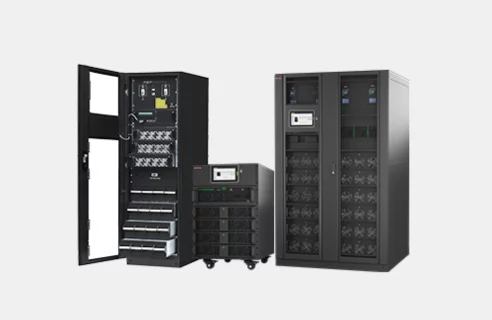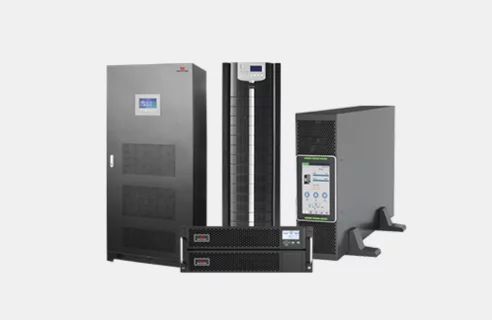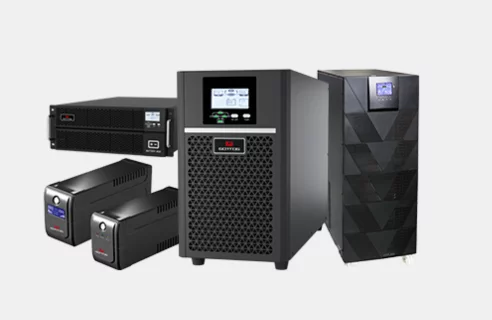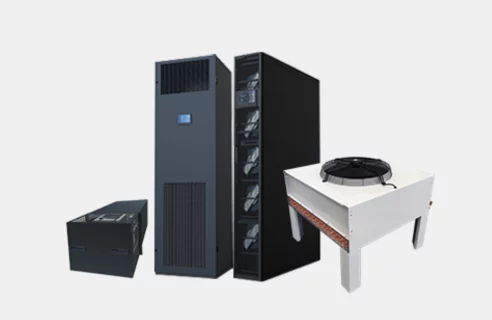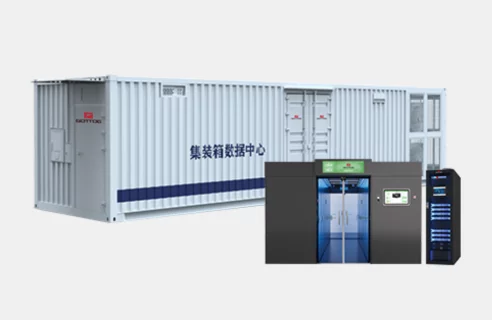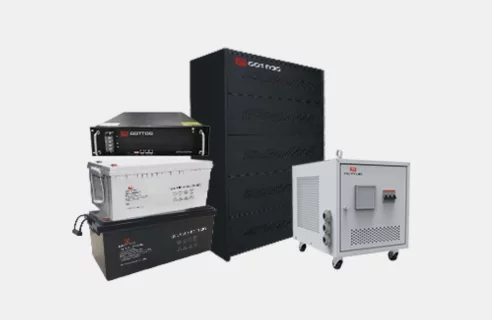With the development of technology and the continuous growth of electricity demand, UPS (uninterruptible power supply) has been widely used in various key places as an important device to ensure power supply. Traditional UPS and energy storage modular UPS are two main solutions. Although they are both designed to provide backup power, there are significant differences in design, scalability, efficiency and maintenance. Today, our editor will lead you to understand the difference between energy storage modular UPS and traditional UPS.

In terms of structural design, traditional UPS is usually a closed, integrated design, which includes all components such as battery packs, inverters and rectifiers. The capacity and scalability of the equipment are usually limited by a fixed design architecture. Although traditional UPS can provide reliable power guarantee, its expansion and maintenance are relatively difficult, especially when the battery needs to be replaced or the capacity needs to be upgraded, the equipment may need to be replaced as a whole.
In contrast, energy storage modular UPS adopts a modular design, that is, the various functions of UPS (such as batteries, inverters, etc.) are split into multiple independent modules. Each module usually has relatively independent functions and capacities, and can be flexibly expanded and replaced according to needs. This modular design enables the energy storage modular UPS to flexibly add or reduce modules according to actual needs and provide customized solutions.
In terms of scalability and flexibility, traditional modular online UPS has limitations in scalability. Once the load demand increases, it is often necessary to replace the entire set of equipment or perform expensive upgrades on the basis of existing equipment. The energy storage modular UPS provides higher flexibility. Users can add or remove battery modules and inverter modules as needed according to the actual load conditions to meet the changing power needs. This flexibility not only reduces the cost of upgrades, but also makes system expansion more convenient and quick.
In terms of maintenance and management, in traditional UPS, once a fault occurs, the entire system often needs to be overhauled, which usually involves a more complex and expensive maintenance process. The modular design of the energy storage modular UPS makes fault location and repair more efficient. If a module fails, only the module needs to be replaced or repaired without affecting the normal operation of the entire system. In addition, modular UPS is usually equipped with an intelligent monitoring system that can monitor the working status of each module in real time, warn of potential problems in advance, and further reduce downtime and maintenance costs.
Finally, let me explain a relatively important point, which is also what everyone pays more attention to. From the perspective of cost-effectiveness, although the initial investment of energy storage modular UPS may be high, due to its flexibility, scalability and lower maintenance costs, the cost-effectiveness in long-term operation is often better. Users can adjust the system capacity according to actual needs, avoiding the waste of resources caused by excessive power reservation in traditional UPS systems.

Our main products range from high quality Modular online UPS to energy storage modular UPS and other products. Due to competitive price and satisfying service, our products gain a very good reputation among the customers. GOTTOGPOWER is committed to providing you with the most convenient services.

